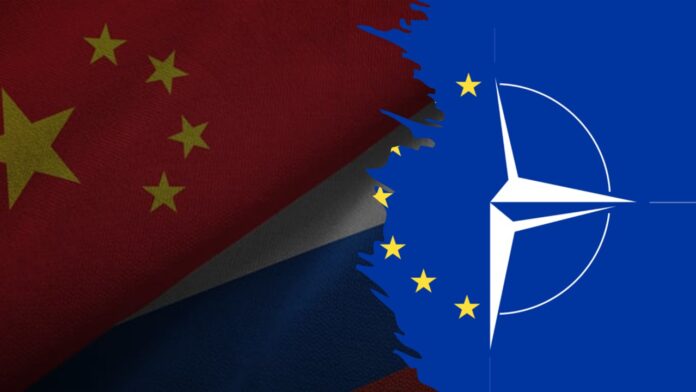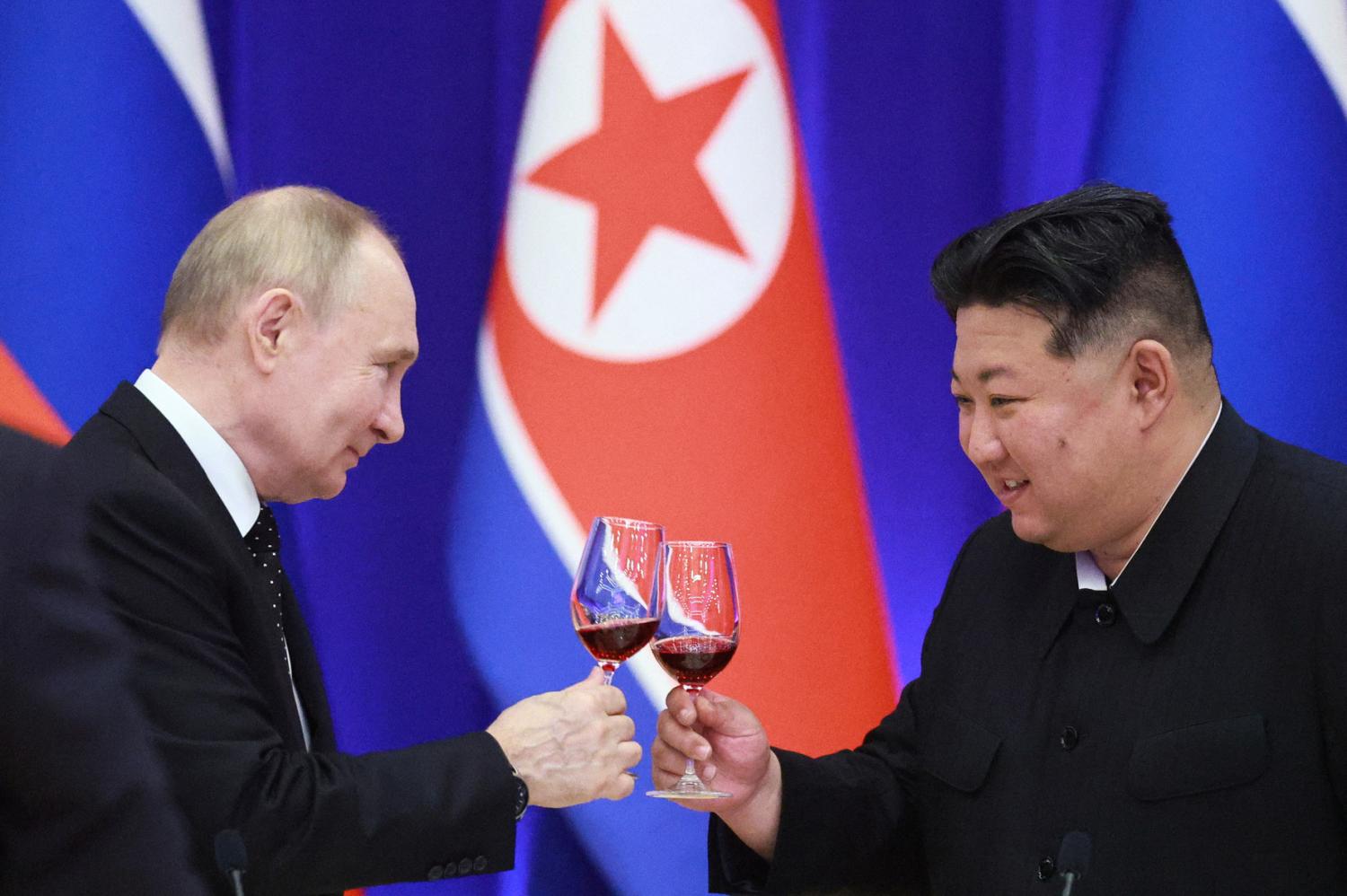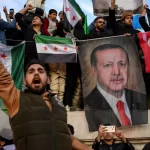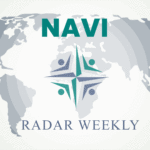Subscribe to NAVI Radar Weekly here
Focus Point: Regional Security- Transatlantic Security/NATO
Defence Expenditure of NATO Countries (2014-2024) | NATO
NATO | 17.06.2024
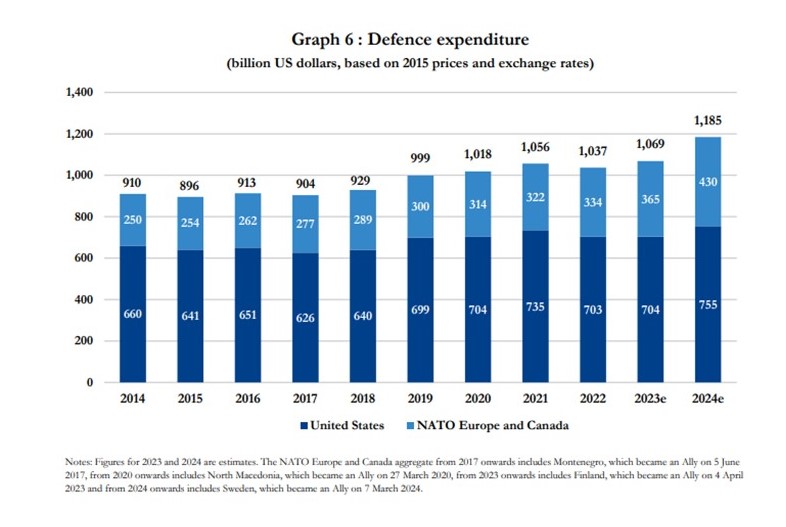
NATO collects defence expenditure data from Allies and publishes it on a regular basis. Each Ally’s Ministry of Defence reports current and estimated future defence expenditure according to an agreed definition. The amounts represent payments by a national government that have been or will be made during the course of the fiscal year to meet the needs of its armed forces, those of Allies or of the Alliance. In the figures and tables that follow, NATO also uses economic and demographic information available from the Directorate-General for Economic and Financial Affairs of the European Commission (DG ECFIN) and the Organisation for Economic Co-operation and Development (OECD).
The cut-off date for information used in this report was 12 June 2024. Figures for 2023 and 2024 are estimates.
In view of differences between these sources and national GDP forecasts, and also the definition of NATO defence expenditure and national definitions, the figures shown in this report may considerably diverge from those that are referenced by media, published by national authorities or given in national budgets. Equipment expenditure includes expenditure on major equipment as well as on research and development devoted to major equipment. Personnel expenditure includes pensions paid to retirees. Read more…
Focus Point: Regional Security- Transatlantic Security/European Security
Keynote Speech by Minister Peng Gang at the CCCEU 2024 Europe-China Business Summit | Euractiv
Minister Peng Gang | Mission of China to the EU| 17.06.2024
Minister Peng Gang delivered an insightful keynote speech, highlighting the depth of China and the EU economic interdependence and the immense potential for further cooperation during the CCCEU 2024 Europe-China Business Summit.
Key Highlights from Minister Peng Gang’s Speech:
- Deep Economic Ties: In 2023, China-EU trade in goods reached a staggering
$783 billion, reflecting our mutual benefit and win-win relationship.
- Expanding Investments: The stock of two-way investment has exceeded
$250 billion, with European and Chinese enterprises optimistic about each other’s markets.
- Addressing Trade Frictions: Minister Peng emphasized the importance of dialogue and consultation in resolving concerns, particularly regarding trade defense instruments and the recent countervailing duties on Chinese BEVs.
- Mutual Opportunities: Cooperation between China and the EU is seen as an opportunity rather than a risk, with both sides benefiting from each other’s markets and innovations.
- Balanced Trade: Minister Peng called for an objective view of trade imbalances and encouraged the EU to relax export restrictions on high-tech products to China.
- Industrial Subsidies: He highlighted that China’s industrial subsidies are legitimate and in line with WTO rules, contrasting them with recent US and EU subsidies.
- Healthy Competition: Fair competition in the market was emphasized as a driver for innovation and growth for both Chinese and European companies.
- President Xi Jinping stressed that China always views its relations with the EU from a strategic and long-term perspective. It regards Europe as an important dimension in its major-country diplomacy with Chinese characteristics and an important partner on its path toward Chinese modernization. It is hoped that the China-EU ties could be promoted for a steady and sound growth.
- Looking ahead, China is committed to promoting mutually beneficial cooperation, continuing its path of reform and opening-up, and creating a world-class business environment. This summit serves as a platform for valuable exchanges and exploring new potentials for China-EU cooperation. Read more…
Focus Point: Regional Security- Transatlantic Security/NATO
Secretary General in Washington: NATO makes America stronger| NATO
Secretary General Jens Stoltenberg met with U.S. President Joe Biden at the White House in Washington D.C. on Monday (17 June 2024), announcing new defence spending figures and outlining priorities for the upcoming NATO Summit.
Mr Stoltenberg thanked President Biden for his leadership and strong commitment to NATO. He highlighted that NATO is making America stronger by advancing US interests. Read more…
Focus Point: Regional Security- Transatlantic Security/NATO
Future Scenarios for Sino-Russian Military Cooperation | RAND
Mark Cozad, Cortez A. Cooper III, Alexis A. Blanc, David Woodworth, Anthony Atler, Kotryna Jukneviciute, Mark Hvizda, Sale Lilly |18.06.2024
Research Questions
- Under what possible scenarios and circumstances might Moscow and Beijing agree to participate in a combined military operation with each other?
- What roles might Russia and China accept in these future scenarios?
Recommendations
- Efforts to break apart the Sino-Russian relationship are unlikely to succeed and may end up motivating both Russia and China to strengthen their ties. This strategic partnership is vital to Putin and Xi, but its importance preceded them and will extend beyond their tenures.
- The United States’ most effective means for countering the Russia-China strategic partnership is ensuring the health of its own alliances and pursuing ever greater cooperation among its most important allies and partners. This U.S. network of alliances is a significant advantage.
- Although the possibilities for cooperation in a combined operation appear to be limited now, U.S. planners and policymakers need to consider the circumstances under which Russia and China might pursue cooperation and factor those considerations into planning efforts.
- Policymakers and planners should avoid overestimating the state of military cooperation and operational integration that exists between Russia and China.
- Deterrence issues in the context of the Russia-China relationship will become increasingly complicated because of Moscow’s and Beijing’s differing risk calculations and perspectives on the role of nuclear weapons. The United States should consider such areas of friction as an opportunity to inject doubt into the minds of senior leaders in Russia and China about the costs and risks associated with a conflict involving the United States and its allies. Read more…
Focus Point: Security and Defense Policy- Defense Discussions
World’s nuclear powers strengthening arsenals as geopolitical tensions grow, report finds | CNN
Radina Gigova | 18.06.2024
Nuclear-armed countries are strengthening their arsenals and several have made ready new nuclear-armed or nuclear-capable weapons systems amid rising geopolitical tensions, a new report has found.
The nine nuclear states – the United States, Russia, the United Kingdom, France, China, India, Pakistan, North Korea and Israel – have continued to modernize their weapons stockpiles, with China, for the first time, possibly deploying “a small number of warheads on missiles during peacetime,” the Stockholm International Peace Research Institute (SIPRI) said in a new report published Monday. Read more…
Focus Point: Regional Security- Transatlantic Security/NATO
The Strategic Utility of Special Operations Forces in the U.S. Homeland Security and Defense | NAVI Research Institute
Hasan Bilgin |18.06.2024

After the September 11 attacks, Special Operations Forces (SOF) use and importance have been increased dramatically. How to deploy SOF has become a heavily debated topic between academics and the military. This article examines the strategic utility of special operations forces as a policy tool for Homeland Security and Defense. Moreover, which type of missions and roles provide strategic value for national security.
This article presents a theoretical and conceptual overview of special operations, strategic utility, and SOF roles and missions to provide a common understanding.
The results were reached that SOF was not used in accordance with its capabilities and limitations, its weaknesses were not taken into account, and adequate strategic utility was not achieved. Read more…
Focus Point: Regional Security- Africa Security
Contagious Coups in Africa? History of Civil–Military Imbalance |EGMONT

Nina Wilén | 19.06.2024
Africa has seen 16 coup attempts in less than 4 years, 9 of which have been successful. This implies an increase in both the number of coup attempts and their success rate, leading to discussions a boutan ‘epidemic of coups’ or ‘contagious coups’, with ‘coups within coups’, being exemplified in no fewer than three states.
The new coup wave represents a break with the previous two decades which saw fewer but more effective coup attempts. The majority of the recent coups have taken place in the Sahel region, which has seen an expansion of jihadist groups during the past decade.
The definition of a coup attempt is an event in which there is an illegal and overt attempt by the military or other elites within the state apparatus to unseat the sitting executive. This intervention can take various forms, including assassination or detention of the head of state by the coup perpetrators, the suspension of the constitutional order and can be explicitly or implicitly violent. To be considered a successful coup, the coup leaders must hold power for a consecutive week.
Focus Point: Security and Defense Policy- Great Power Competition
European AI Office| NAVI Research Institute
NAVI Research Institute | 19.06.2024

The European AI Office has officially launched on June 17th, 2024! This milestone marks a significant step towards ensuring that artificial intelligence (AI) used in the EU adheres to the principles outlined in the #AIAct.
With a team of 140 talented professionals, the European AI Office is set to play a crucial role in promoting innovation and fostering competitiveness based on advanced AI systems.
The establishment of the European AI Office underscores the EU’s commitment to making trustworthy AI a common good for the world. As AI continues to shape various aspects of our lives, it is crucial to have a regulatory framework that safeguards the ethical and responsible use of this technology.
The European AI Office will work diligently to ensure that AI systems deployed within the EU meet the necessary guardrails defined in the #AIAct, ensuring the protection of individuals’ rights and promoting transparency.
The European AI Office will have on the AI landscape within the EU and beyond. Read more…
Focus Point: Security and Defense Policy- Russia-Ukraine War
Does Diplomacy still have a chance in Ukraine?| Finabel
Finabel| 19.06.2024
Between the 15th and the 16th of June 2024, delegations from nearly 100 countries gathered in Bürgenstock Resort in Switzerland to discuss a path to peace in Ukraine. While Russia and its key ally China were not there, most participants reaffirmed their support for Ukraine’s territorial integrity and the core principles of international law in the final communique.
In the second episode of StrategicALLY, Gaia Durante Mangoni and Patricia Bernardo are joined by Andreas Umland, Senior Analyst at the Stockholm Centre for Eastern European Studies and a Research Fellow at the Swedish Institute for International Studies, to talk about the outcomes of the Ukraine Peace Summit in Switzerland and its significance for future diplomatic efforts.
They assess how successful this conference was for Kyiv and Ukrainian President Zelenskyy’s efforts to rally the support of as many countries as possible for its peace formula. They also analyse the situation on the battlefield and the implications of Ukraine’s Western allies easing restrictions on the use of certain weapons. Finally, they look at the nuclear risks involved in this war and Russia’s peace plan. Read more…
Focus Point: Regional Security- Transatlantic Security/NATO
Mark Rutte set to be next NATO chief after securing Romania’s backing| Euronews
Jack Schickler | 20.06.2024

Dutch Prime Minister Mark Rutte is to be named the next Secretary General of NATO after the last remaining holdout Romania agreed to back his candidacy.
Rutte will govern over a tricky few years as the transatlantic alliance balances Russian aggression and potentially wavering US support.
His appointment was confirmed just ahead of a summit due to be held in Washington, DC on July 9-11, marking the alliance’s 75th anniversary. Read more…
Focus Point: Regional Security- Transatlantic Security/NATO
Strengthening NATO and EU Industrial Capacity in Response to Threats Emanating from China and Russia| NAVI Research Institute
Umit Kurt | 20.06.2024
In the face of escalating geopolitical tensions, primarily emanating from China and Russia, the need for NATO and the EU to bolster their industrial capacity has never been more pressing. The transition from a capacity-based defense planning strategy to a threat-based approach underscores a fundamental shift in how security challenges are perceived and addressed.
As articulated by the NATO Veterans Initiative (NAVI), recent developments, such as China’s assertive stance regarding Taiwan and Russia’s military buildup, necessitate a reevaluation of traditional defense paradigms.
This commentary paper aims to provide a comprehensive assessment of the urgency and implications of enhancing industrial capacity within NATO and the EU to counter the evolving threats posed by China and Russia effectively. Read more…
Focus Point: Security and Defense Policy- Russia-Ukraine War
The EU Ukraine Liberty Bond: Using the Whole of the €300 billion in Russian Assets in the EU Now | EGMONT
Bernard Siman | 21.06.2024
The EU has been debating how best to use the roughly €300 billion of Russian assets that are in EU jurisdictions to fund Ukraine-related expenditure. In the end, only the income and proceeds earned on the assets are used, including, most recently, as collateral for a $50 billion loan. Russia retains the ownership title to the assets themselves, in accordance with the basic tenets of our constitutional and legal principles. I believe that the current regime can be turbo-charged, utilising a financial markets-driven solution.
Freezing is not seizing.
A key distinction must be made between the freezing and the seizing of assets. The former does not transfer the ownership title of the assets to a new owner, in this case from the Russian Federation to EU/relevant member state’s ownership. The latter does just that. The EU has been justifiably reluctant to violate, by fiat, the basic tenet of the sanctity of ownership titles. This is a slippery slope, if ever there was one, creating the wrong kind of precedent. Today’s political bête noire is Russia: who guarantees that the precedent will not be abused tomorrow by other political forces to expropriate property from opponents? Read more…
Focus Point: Social, Economic & Security- European Economy
A New Economics Playbook is About to Drop in Europe. The U.S. Should be on Notice | Politico
Victoria Guida|21.06.2024 | A must read
Normally, a white paper by an Italian technocrat recommending policy changes on economic governance in Europe wouldn’t get much notice on this side of the Atlantic.
But Mario Draghi is not just any European, and this isn’t just any paper.
In a few weeks, the former Italian prime minister will lay out a vision of how the European Union can boost its productivity and stay competitive in an “increasingly cutthroat” global economy. A person familiar with the drafting of the report told me it would call for comprehensive policy tools to accelerate innovation. Read more…
Focus Point: Regional Security- Transatlantic Security/NATO
NATO announces nomination of Admiral Pierre Vandier, French Navy, as Supreme Allied Commander Transformation | NATO
NATO | 21.06.2024
On 20 June 2024, the North Atlantic Council approved the nomination of Admiral Pierre Vandier, French Navy, to the post of Supreme Allied Commander Transformation.
Admiral Pierre Vandier is currently serving as the Vice Chief of Defence. Admiral Vandier will succeed General Philippe Lavigne, French Air and Space Force, at a change of command ceremony at the Headquarters of Supreme Allied Command Transformation in Norfolk, Virginia in September 2024.
On behalf of all Allied governments, the North Atlantic Council expressed deep and lasting gratitude for the distinguished service rendered by General Lavigne as the Supreme Allied Commander Transformation. Read more…
Focus Point: Security and Defense Policy- Great Power Competition
Putin and Kim are creating a crisis-Can the US and China rein them in? | Brookings
Patricia M. Kim | 21.06.2024
Russian and North Korean collusion has never played out favorably for China.
China’s top objectives for the Korean Peninsula—no crisis or chaos—are actually more in line with the interests of Washington and its allies than with Pyongyang and Moscow. Before a crisis strikes, the United States and China, along with South Korea and other regional stakeholders, should work together to rein in the Putin-Kim collaboration and revamp diplomacy on the Korean Peninsula. Read more…
Focus Point: Regional Security- Transatlantic Security/NATO
Secretary General concludes visit to United States and Canada, preparing for NATO’s Washington Summit | NATO
NATO | 21.06.2024

On Friday (21 June 2024), NATO Secretary General Jens Stoltenberg wrapped up his trip to the United States and Canada, in preparation for the upcoming Summit in Washington D.C. in July.
During his visit, Mr Stoltenberg unveiled new defence expenditure figures across the Alliance, highlighting the biggest increase in defence spending across European Allies and Canada for decades – up 18 percent this year. He further announced that 23 Allies will invest at least 2 percent of GDP in defence this year.
On Monday, Mr Stoltenberg met with U.S. President Joe Biden at the White House where he announced the new defence spending figures and outlined priorities for the upcoming Summit, including urgent support to Ukraine. He also delivered a speech at the Wilson Center, emphasising that keeping Europe safe and NATO strong is in the vital national interest of the United States.
On Tuesday, at a joint press conference with U.S. Secretary of State Antony Blinken in Washington D.C., Mr Stoltenberg welcomed an historic improvement in burden sharing within NATO. He outlined that since 2014, Europe and Canada “have added over 640 billion extra in defence spending.” The Secretary General also met with members of the Senate Foreign Relations Committee, including Senate Minority Leader Mitch McConnell and members of the Senate NATO Observer Group.
On Wednesday in Ottawa, Mr Stoltenberg thanked Canada for its many contributions to NATO, and stressed the importance of Allies spending at least 2% of GDP on defence. He met with Prime Minister Justin Trudeau and Foreign Minister Mélanie Joly, and delivered a speech at an event hosted by the NATO Association of Canada and the Canadian NATO Parliamentary Association.
On Thursday, Mr Stoltenberg met with U.S. National Security Advisor, Jake Sullivan. Their discussion focused on strengthening Allied resilience, further boosting transatlantic defence industry and supporting Ukraine for the long term. He also met with Congressman Mike Turner and Congressman Gerry Connolly. Read more
Thank you very much for reading.
The NAVI Research Institute is the research division of NATO Veterans Initiative - NAVI that provides a unique perspective to transatlantic leaders and societies on peace and security through the lens of NATO's founding principles of rule of law, democracy, human rights, and individual liberties. The NAVI Research Institute was officially established by the NAVI Board on July 16th, 2023.
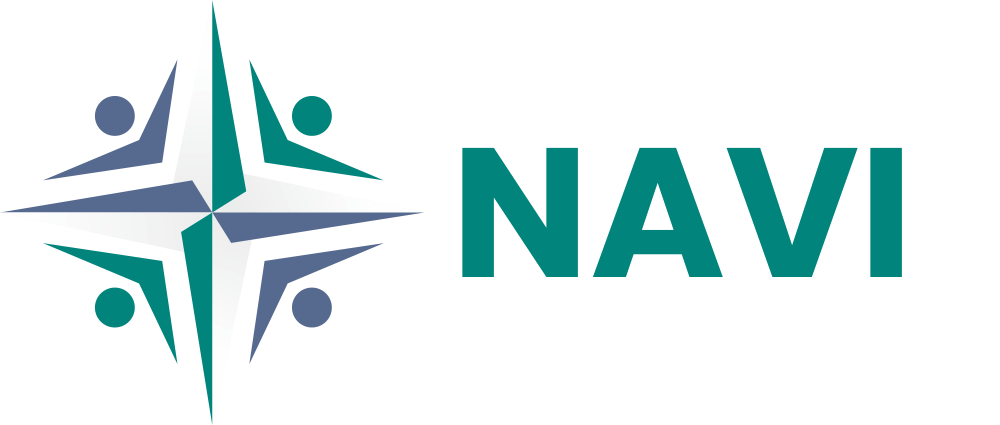
![NAVI-PROJE-[Recovered] Radar Weekly](https://nato-veterans.org/wp-content/uploads/2024/05/NAVI-PROJE-Recovered-696x392.gif)





